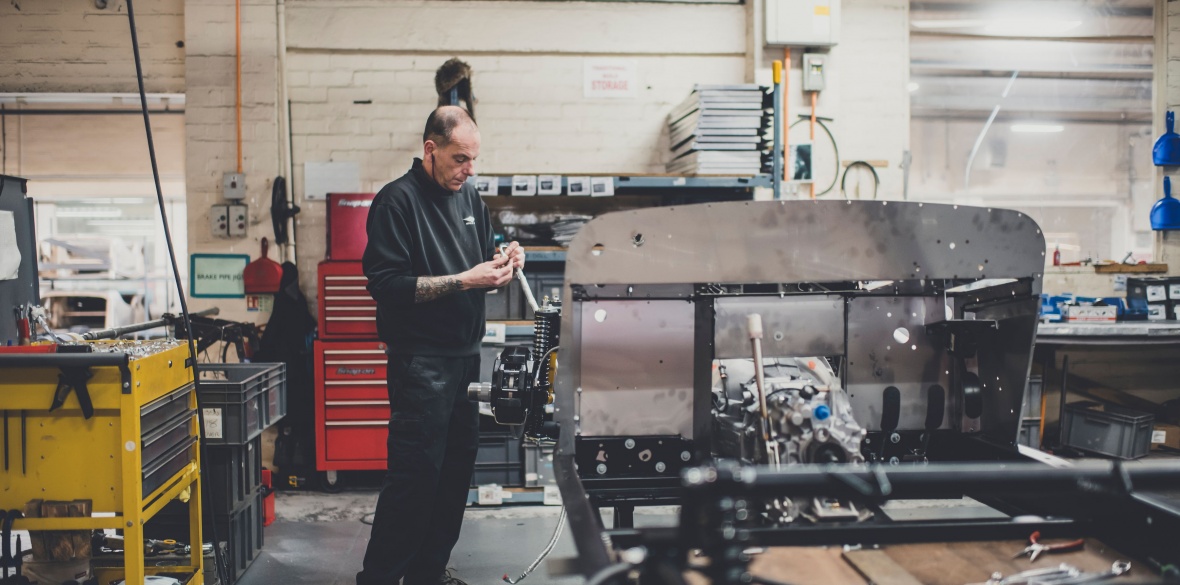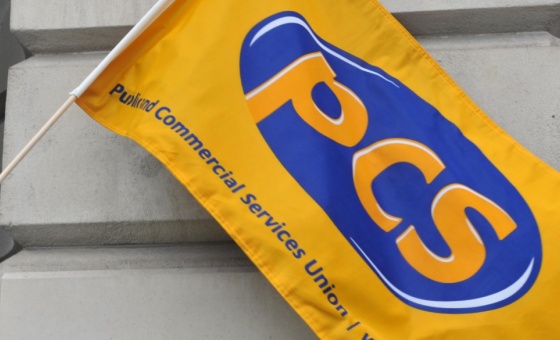This is the last article you can read this month
You can read more article this month
You can read more articles this month
Sorry your limit is up for this month
Reset on:
Please help support the Morning Star by subscribing here
JOBS continue to be lost across Scotland. Within the last six months Cummings has announced the closure of its engine works in Cumbernauld and Devro has shut its manufacturing plant in Bellshill. In the banking sector the Bank of Scotland has announced a further 15 branch closures, Virgin Money seven and TSB seventeen. BiFab is reducing its three Scottish sites to a care and maintenance basis and IBM has put its 49 East Kilbride IT staff, contracted to Scottish Power, on notice.
All these firms have one thing in common. They are owned and controlled from outside Scotland. Twenty years ago at least some were still run from within Scotland: Devro, Bank of Scotland, Scottish Power.
Last year also saw the much more high-profile closure of the historic Caley rail workshops in Springburn. At that point the firm was ultimately owned by a German holding company, Mutares, that specialises in what is described as “equity engineering.” This is not engineering as you or I know it. It is about “engineering” firms — buying them, stripping assets, merging, concentrating and if possible securing monopoly niches for particular products.
Pinneys, the seafood processor at Annan, closed two years ago with 450 job losses, was owned by Youngs Seafood, in turn owned in the same way by a company called CapVest Partners.
This trend to concentration is not something restricted to Scotland. It is happening globally and is driven largely by wealth funds managed by investment banks on behalf of the very rich. The biggest are based in the US. Others are run from the City of London, Switzerland and Germany.
These funds seek to maximise profits through monopoly control. According to studies conducted for the US National Bureau for Economic Research, this has been the dominant trend in the US economy since the 2008 financial crisis. Little or no new investment has gone into production. Instead it is used to concentrate ownership — and it is driven by a massive increase in investible wealth in the hands of the very rich.
The IMF Global Stability Report estimates that the volume of cash handled by investment funds has increased from $25 trillion in 2008 to $64 trillion today (global GDP is only $84 trillion).
One of the biggest of these investment companies is the US-based BlackRock. Back in 2015 BlackRock became the biggest shareholder in the John Wood Group when it was floated on the stock exchange. Previously the firm, under largely family ownership, had been one of the biggest and most technically dynamic of the Scottish-based contracting firms in the North Sea.
BlackRock also happened to be the biggest shareholder in AMEC, another international engineering contractor. In 2017 John Wood was persuaded to merge with AMEC. It borrowed massively to do so. Since then, weighed down by debt, it has been shedding jobs, selling off previously viable productions divisions and looking to reduce its commitment to the North Sea.
This is why the issue of ownership and control is not just a matter of academic interest. For small countries like Scotland it is a matter of critical importance. Scotland now has few areas in which it leads technologically. Compared with other small nations it has low levels of productivity and its expenditure on research and development is a third lower than the OECD average.
What is the Scottish government doing? Very little. It has been very reticent on the issue of ownership and control. Its strategic plan, the Growth Commission Report, sees the future largely in terms of attracting more companies from overseas.
Labour, on the other hand, has made ownership and control a central issue. Jeremy Corbyn’s 2018 Coventry speech called for the comprehensive public ownership of utilities and a state investment bank that would take major stakes in strategic companies. This was matched with another key part of the Labour programme: trade union representatives sitting on company boards. Such representatives would provide an empowered counterbalance to the asset stripping and short-term profit maximisation too often enforced by the big investment companies.
Similar proposals have been made for Scotland by Richard Leonard who has stressed particularly the potential for co-operative ownership.
Although Labour is not in office — and not likely to be for some time — the trade union movement has parallel demands. Trade unionists directly understand the need for social accountability and have, if we remember the 1970s, the campaigning potential to shift governments. Who could argue that the challenges to industrial development are not even more acute than they were then?
And today the issue is urgent. Negotiations are just beginning in Brussels that will set the framework for public policy in Britain for the next generation. Although our prime minister has done his best to obscure the issues, there seems every likelihood that deals will be done to suit the City of London and corporate investors.
On February 17 the British chief negotiator, David Frost, indicated that a settlement might be negotiated along the lines of the Canada Free Trade Agreement. This would incorporate current EU competition terms including restrictions on public ownership and state aid and lock us into a neoliberal straitjacket for the next generation and incapable of resisting the rising tide of corporate concentration.
This is why the Scottish government should today be demanding that these powers are restored to the Scottish Parliament and not negotiated away by Boris Johnson. Last April the Scottish Trades Union Congress unanimously passed a resolution calling for it to do so. Scottish trade unionists should be demanding this now and supporting the petition launched by Vince Mills, on behalf of Rose — Radical Options for Scotland and Europe, to the Scottish Government.
John Foster is secretary of Radical Options for Scotland and Europe jointly with Vince Mills. The petition to the Scottish Parliament can be found at www.radicaloptions.scot.











